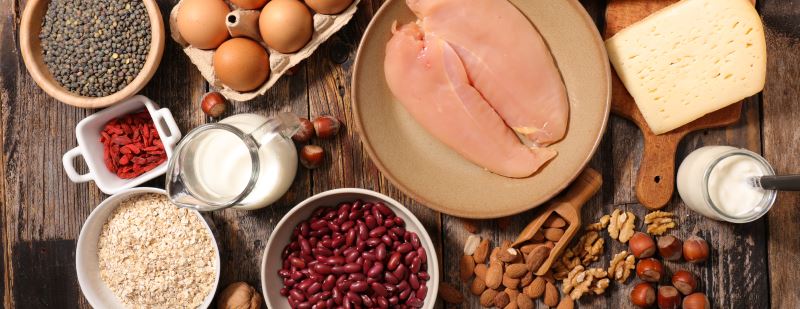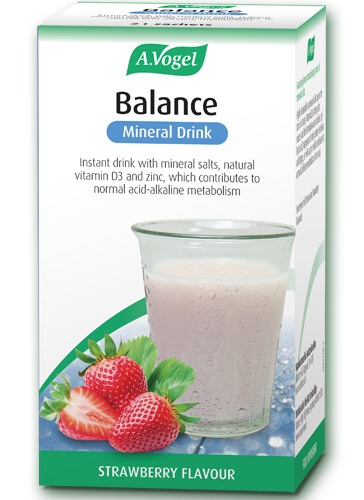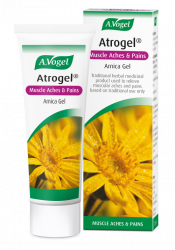The popularity of protein shakes
Protein shakes were once only seen in the hands of body builders and professional athletes, but these days it seems like everyone is taking them! Some people glug them down after a half-hour jog, others use them as a weight loss tool, and some use them for energy.
With so many companies advertising the amazing benefits of their protein shake, how can you figure out if you really need one after your workout?
First of all, you need to figure out how much protein you need to support your levels of activity and how much you’re getting from your diet.
How much protein do we need a day?
This is a common question, and one that is actually quite difficult to answer. Different studies, experts and sports professionals often cite different minimum and maximum protein intakes, so it can be difficult to figure out how much you need for the level of exercise you’re doing.
The official dietary recommendation is 0.8g protein per kilogram of body weight, and as a general rule of thumb this should be enough for sedentary adults and those doing regular light exercise, such as a half-hour jog three times a week or attending daily yoga classes.
For adults doing regular, moderate exercise – running or working out 5-7 times a week, for example – this may need to increase to 0.8-1g per kg of bodyweight.
For adults doing higher intensity workouts – such as running for longer than an hour daily, doing intensive weight training, or training for competitive sport – this will likely increase to around 1-1.2g per kg of body weight.
Simply weigh yourself, figure out which category you fall into, and then do the quick calculation for an estimated requirement.
For example, a 60kg woman who runs three times a week would need around 48g of protein a day, while an 80kg man who works out for an hour a day will need around 64-80g of protein.
However, if you start experiencing problems like fatigue, muscle and joint pain, slow injury recovery, dull skin and thin hair, then this could indicate that you’re not getting enough protein.
Where does protein come from in my diet?

Before you can decide whether or not you need a protein shake, you need to figure out if your protein requirements are being covered by your diet.
When we talk about protein, most people focus on meat, but this isn’t always the healthiest form of protein and will certainly not be the only source of protein in your diet. Protein can actually be found in a huge number of foods, from vegetables and carbohydrates to nuts, seeds and pulses. Take a look at the table below for some information on a few sources of protein.
| Food | Portion Size | Protein Provided |
| Brown Rice | 100g | 2.6g |
| Broccoli | 100g | 2.8g |
| Cow's Milk | 100ml | 3.6g |
| Kale | 100g | 4.3g |
| Seeded Bread | 1 slice | 4-6g |
| Tofu | 100g | 8g |
| Chia seeds | 100g | 17g |
| Oats | 100g | 17g |
| Cashew nuts | 100g | 18g |
| Chickpeas | 100g | 19g |
| Salmon | 100g | 20g |
| Kidney beans | 100g | 24g |
| Beef steak | 100g | 25g |
| Chicken | 100g | 27g |
As you can see, there are plenty of sources of protein, so you may actually be getting more than you think! Protein can be found in your morning porridge, your lunchtime sandwich and even the veggies you eat with your evening meal. Provided you’re eating a healthy, balanced diet, chances are you’re getting plenty.
However, the problem with the plant-based sources is that you usually need to eat more of them to get the same amount of protein as meat – for example, it’s fairly easy to eat 100g of chicken in a meal, but to get the same amount of protein from tofu, you’d have to eat around 300g!
This isn’t to say you need meat to get your daily protein requirements, just that if you choose to follow a vegan or vegetarian diet, you need to make sure you eat lots of balanced meals with plenty of beans and pulses, and try to incorporate nuts and seeds into your snacks.
Should I be taking a protein shake after my workouts?
Hopefully by now this should be a little easier to answer. Once you’ve decided how much protein you need, all you need to do is try and figure out if your diet is covering these requirements – if it isn’t, then a protein shake is probably a good idea!
To make things easier, these are the two groups that generally need to supplement their protein intake with protein shakes:
- Anyone on a meat-based diet who is doing particularly high-intensity exercise such as bodybuilding, long-distance running, competitive sport or athletic training.
- Anyone on a vegan or vegetarian diet who is doing moderate or high-intesnity exercise – for example running, swimming, going to the gym or weight training more than three times a week.
However, this is a general rule of thumb so don't forget to look at your diet – if you're already purposefully increasing protein by eating 4 eggs for breakfast, chicken for lunch and lean beef for dinner as well eating high-protein snacks, then chances are you probably don't need a protein shake even for high-intensity exercise.
Remember, however, that different protein shakes contain different levels of protein, so choosing the right one for you is a whole different issue, and again depends on your diet and exercise levels. Check out the range of proteins available from our friends at Jan de Vries.
I’d recommend opting for a healthy, natural version, rather than the artificial ones packed with sweeteners and artificial flavours. Purition are one of our favourite brands, as their shakes contain not only protein (whey or hemp) but also a mix of nuts, seeds and fibre for an all-round boost in nutrition!
If you’re not taking a protein shake, I’d still recommend some kind of post-workout recovery drink, such as our own Balance Mineral Drink. This contains magnesium (which is great for achy muscles) zinc, potassium and calcium to replace the electrolytes that you’ve lost during your workout. It can even help to reduce fatigue and boost energy. If you’re taking a protein shake, just add this in too!
Remember that protein shakes aren't the only protein supplement available either! Healthy protein bars such as these ones from Pulsin are a great way to top up on protein without the bother of a shake.









